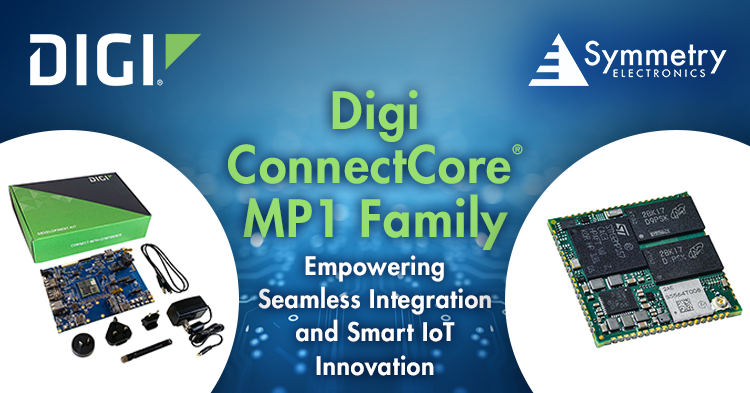How to Cultivate Field Condition Innovation with Precision Irrigation
Decoding Agricultural Success
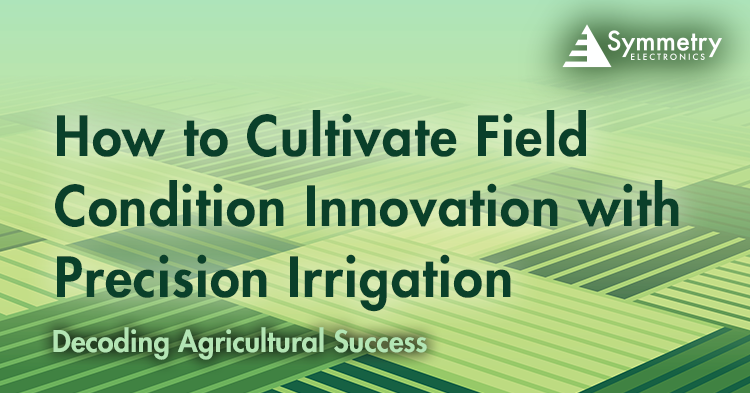
Modern agriculture stands at a crucial juncture where innovation meets necessity. According to the US Census, the global population reached an estimated 8,019,876,189 on January 1st, 2024. On average, there are approximately 4 babies born every second. The need for sustainable food production and comprehensive water management has never been more pressing. One key solution lies in revolutionizing the way we farm our food; a digitalization of agriculture.
Precision irrigation technology offers not only the promise of increased crop yields but also significant water conservation benefits. However, achieving precision in irrigation requires a deep understanding of field conditions and the adoption of cutting-edge technologies. Let’s explore the intricacies of smart water management solutions in agricultural environments some crucial design solutions now available at Symmetry Electronics.
What is Precision Irrigation?
Precision irrigation is more than just a buzzword; it’s a fundamental shift in agricultural practices. At its core, precision irrigation entails the precise application of water, nutrients, and other inputs to crops based on real-time data and insights.
Accurate data collection, real-time monitoring, and adaptive control mechanisms form the foundation of precision irrigation systems. By leveraging technology to customize irrigation strategies to the specific needs of crops, farmers can optimize water usage, maximize yield, and minimize environmental impact.
The 3 Methods of Precision Irrigation
Precision irrigation encompasses three main methods for efficient water delivery:
Surface Irrigation:
- Utilizes gravity to naturally distribute water across the field.
- Best suited for clay soils, but may pose challenges in sandy soils.
- Basin Technique: Creating bunds to confine an area and flood it, commonly used for rice and wheat cultivation.
Sprinkler Irrigation
- Employs sprinkler technology to tailor water delivery to specific crop needs.
- Directs water precisely to plant roots, minimizing wastage.
- Operates at optimal pressure levels to ensure efficient water distribution.
Trickle (Drip) Irrigation:
- Delivers precise water supply directly to the plant base through tubes or pipes.
- Particularly beneficial for water-scarce regions and orchards.
- Minimizes water loss caused by evaporation, enhancing water use efficiency.
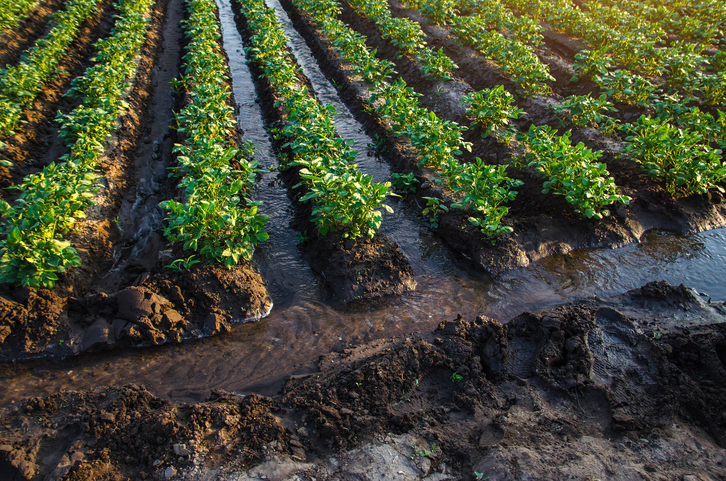
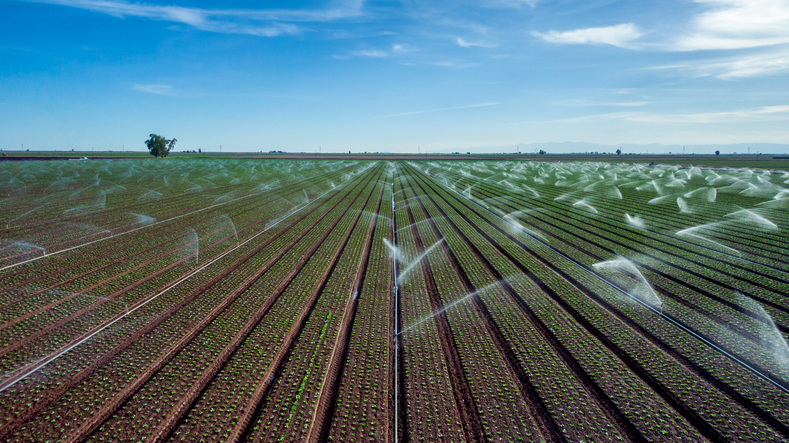
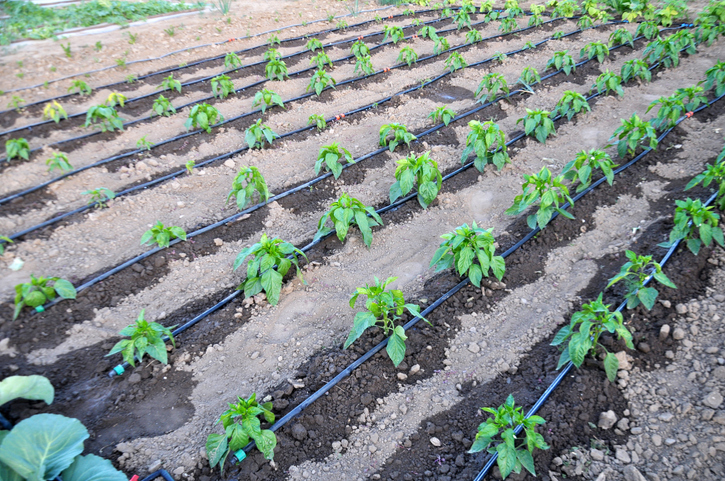
Field Conditions: The Crucial Factor
Basically, precision irrigation is an approach that optimizes water usage by delivering water and nutrients to crops in a precise and efficient manner. It ensures that plants receive the exact amount of water they need at the right time and in the right place.
However, a wide range of conditions and considerations must be taken into account for field conditions to truly flourish with precise watering efforts. Factors such as soil type, topography, climate, and crop-specific requirements must be thoroughly analyzed to devise effective irrigation strategies.
Variations in these conditions necessitate dynamic adjustments to irrigation schedules and application rates to ensure optimal crop health, but the technology in precision irrigation systems streamlines this process.
Advanced sensors measure soil moisture levels, weather conditions, and even crop growth stages, providing real-time data that informs irrigation decisions. This data, coupled with sophisticated algorithms, allows precision irrigation systems to adapt dynamically to changing field conditions, optimizing water usage while maximizing crop yield.
Soil type influences water retention and infiltration rates, affecting irrigation frequency and duration. Topography impacts water distribution, with slopes requiring adjustments for uniform coverage.
Climate factors such as temperature, humidity, and precipitation patterns also influence irrigation needs. Precision systems integrate weather forecasts to optimize schedules accordingly.
Crop-specific requirements, including growth stage and root depth, further inform irrigation decisions tailored to each crop's needs.
Smart Irrigation System Benefits and Challenges
Smart irrigation systems, as highlighted by the MIT Office of Sustainability, present a compelling case for water conservation. These systems have been shown to reduce water consumption by 20-60% compared to traditional flood irrigation methods. When agriculture is responsible for 70% of the globe’s freshwater usage, 20-60% savings can make a significant difference.
In addition to water conservation, smart irrigation systems offer the following key benefits:
- Automated Control: systems are conveniently installed and managed through automated controls, empowering farmers to optimize irrigation schedules with minimal effort.
- Enhanced Weed Management: By delivering water with ultra-accuracy, precision irrigation systems limit moisture to unwanted vegetation.
- Nutrient Delivery: Through a process known as fertigation, smart irrigation seamlessly integrates watering with fertilization, ensuring that plants receive essential nutrients alongside water.
- Contribution to Sustainable Farming: By maximizing water utilization, precision irrigation systems play a pivotal role in fostering sustainable agricultural practices.
However, implementing intelligent technologies within conventional settings is not without its obstacles. Widespread adoption of precision irrigation in agriculture has several potential challenges that need to be addressed:
- Data Accuracy: Ensuring the reliability of sensor data is crucial for effective precision irrigation.
- Power Efficiency: Optimizing energy usage is essential to maintain sustainable operations.
- Scalability: Adapting precision irrigation systems to different field sizes requires flexibility and scalability.
That being said, the advantages of smart watering systems outweigh the potential challenges, especially when you have the right technology integrated in your solution.
Developing Precision Irrigation Systems with Symmetry Electronics Solutions
Luckily, Symmetry Electronics has everything developers need to jump on the smart farming bandwagon and design their own precision irrigation solutions. From cutting-edge sensors to automation solutions, Symmetry Electronics delivers the tools you need to develop comprehensive smart irrigation solutions that surmount potential obstacles like data inaccuracies, power inefficiencies, and issues surrounding scalability.
For example, Digi International’s ConnectCore® MP1 is a state-of-the-art embedded system-on-module (SOM) that’s available now at Symmetry Electronics. As an ideal SOM for a wide range of industrial IoT (IIoT) applications, ConnectCore MP1 solutions secure, versatile, and reliable.
The Digi ConnectCore MP157 and ConnectCore MP133 are powerful embedded SOMs with fully scalable platforms, pre-certified dual-band Wi-Fi 5 and Bluetooth 5.2 for convenient connectivity, and built-in Digi TrustFence for robust security.
Building upon the ConnectCore MP1 foundation, the ConnectCore MP157 development kit stands out as the industry’s first dev kit with remote capabilities. Like the MP157 dev kit, the ConnectCore MP133 development kit also boasts a 10 year life-span, compact form factor, and Digi ConnectCore Cloud Services.




